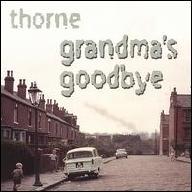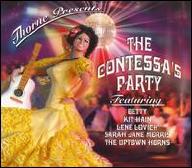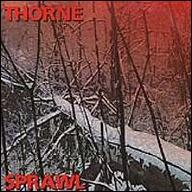Born in Sunderland, England, in 1948, Thorne started taking piano lessons at a young age and continued playing through his teens, although he followed a scientifically oriented academic path, eventually reading physics at Oxford. As a student, he became much more interested in pop and rock and he began to combine his love of music with his technological orientation, building and running a mobile disco-and-light show under the name Heavy Henry.
In 1969, Thorne took a job at De Lane Lea studios in London and worked as a tape operator on sessions with Deep Purple and Fleetwood Mac. This was relatively short-lived; he was fired in 1971 and turned his attention to music journalism with Hi-Fi News Record Review, eventually becoming the editor of Studio Sound magazine. At the same time, he pursued a degree in music composition under Buxton Orr at the Guildhall School of Music and Drama.
Eventually, however, Thorne ventured back into the music business and, by 1976, he was an A&R man at EMI, immersed in London's burgeoning punk scene. Having been instrumental in bringing the Sex Pistols to EMI, he began to try his hand at production. One of his first projects was the seminal punk document The Roxy London WC 2, which introduced him to Wire. Between 1977 and 1979, Thorne produced the band's classic triad of albums, Pink Flag, Chairs Missing, and 154, and contributed significantly to their sound, playing keyboards on the second and third records. During this period, he also worked with Téléphone on their gold-selling debut album and with the Soft Machine.
By 1980, Thorne had left EMI, relocated to New York, and become an independent producer, working on John Cale's Honi Soit among others. It was Soft Cell's enormous chart smash Tainted Love that put him on the pop map, and a frenzy of activity followed during the '80s with the likes of Bronski Beat, The The, Til Tuesday, B-Movie, and the Communards. Many of the records he produced during this period became part of the decade's soundtrack.
At the same time as he enjoyed considerable chart success, Thorne pursued markedly less commercial interests with Laurie Anderson on Strange Angels and even ventured beyond pop completely to contribute electronic effects to Sir Michael Tippett's final opera, +New Year. The end of the decade also saw the development of Thorne's own recording studio, the Stereo Society, in New York's West Village.
Following projects with high-profile artists like Blur, Peter Murphy, and Marc Almond in the early '90s, Thorne quit commercial production and began to explore the intersections of new media and music. After a two-year stint as Director of New Music Media Development with Warner Music International, Thorne refocused his attentions on the Stereo Society and, in addition to producing and contributing to recordings by a diverse set of artists including BETTY, Hilly Kristal, and Johnny Reinhard, he also released his debut album, Sprawl. The new millennium found him working on a second album, preparing a version of Charles Ives' Universe Symphony, and continuing to develop the Stereo Society. ~ Wilson Neate, Rovi
















